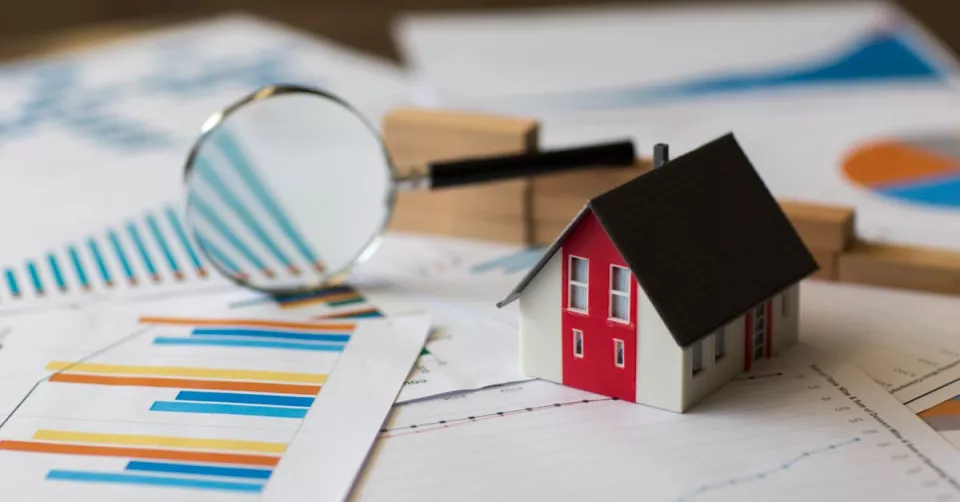
The real-estate investment market in Belgium is very buoyant at the moment. Nevertheless, investment does not necessarily mean profitability! Here are a few tips to help you make the right choice for your future acquisition.
The Belgian property market is doing well. Interest rates remain low, housing prices are rising steadily, demand is growing, etc. So diversifying your assets by investing in real estate can prove lucrative just now. Provided you take account of all the essential elements of a successful investment.
1. WHEN SHOULD YOU INVEST? BEAR IN MIND THE DEVELOPMENT OF THE MARKET
As we said, the Belgian market currently offers a great opportunity for those wishing to invest in real estate.
The coronavirus crisis has also impacted on the property market. Following the various economic upheavals, real estate has become established as a safe investment to provide for the future and make money work. Lockdown has also prompted an increase in the demand for housing in greener surroundings. Belgians are now seeking a place to live that would allow them to benefit more from their home, for example with a garden or a terrace. All the signs are that property prices are set to rise over the coming years, holding out the promise of a potential gain for current buyers.
2. WHERE SHOULD YOU INVEST? THE GEOGRAPHIC LOCATION IS AS IMPORTANT AS THE PROPERTY ITSELF
The neighbourhood, the commune and the region in which the property is located constitute a factor that is as important as the property itself, its size or its standing.
For example, Brussels remains one of the most attractive cities owing to its central position in Europe and the presence of many companies and students. So investing in a studio in the heart of Brussels can soon prove profitable, given the demand and its geographic location.
The choice of the geographic location will depend on your budget, but also on your expectations in terms of profitability and return on investment. For example, you can opt to invest in a property set in a central location that is highly prized on the market. This property will cost you more to buy, but can be leased quickly (very liquid rental market).
Or you could bet on the future and go for a developing district. This will allow you to benefit from good value for money and see the worth of your property increase over time. In this case, find out about the development projects in the commune or region in question. This will give you an idea of the potential gains to be anticipated in the years to come.
The first thing to take into account is still, of course, the annual profitability level that you may hope to obtain on a market. In Brussels, for a property in a good location, already renovated and let unfurnished, this currently amounts to around 3.5%-4% gross on the overall investment (Deed in Hand price). If we take the example of a property again in Brussels, but slightly less well located, in need of some renovation work and let furnished, we can easily increase this profitability by 0.5%.
It is vitally important to define the investor profile from the outset. A ‘reasonably prudent’ profile usually prefers to take little risk and devote little of their time to their property. They will need to be satisfied with a return of around 4%. Conversely, a more aggressive profile wishing to create more added value and willing, for example, to keep an eye on renovation work may hope for a higher return.
3. WHAT SHOULD YOU INVEST IN? THE CONSTRAINTS LINKED TO NEW OR SECOND-HAND PROPERTIES
Although a new property may be more expensive to purchase, it is important to take into account the total cost of the building over a number of years. A second-hand building may cost less initially, but can also become very expensive if repairs or more considerable maintenance are necessary. For example, for an older building you are required by law to ensure that the electricity complies with the standards soon after purchase.
Whatever the circumstances, be sure to take account of all the cost factors of your property. On top of the purchase price, you will also need to add the registration duties, the notary costs, cadastral revenue, any work required, the property tax and so on. And if you are thinking of renting out your property, remember to include the vacancy risk and the management fees if you wish to delegate the rental management of your property!
4. HOW CAN YOU AVOID NASTY SURPRISES?
Carefully examining each factor will allow you to anticipate many risks which could have been avoided. If the property is already leased, for example, ask the current owner about the reliability of the tenants so that you can be sure they pay their rent regularly.
You should also find out about any work that may be required in the short, medium or long term.
Finally, check that the property complies with the urban planning requirements and fire standards. If conversion work has been carried out without applying for a permit, you will have to deal with a violation which will necessarily involve further investment to ensure compliance, costs to obtain the required permit, etc.!
As you can see, investing in real estate is a good way of making your money work. But ensuring a good return on your investment will depend on a whole series of criteria that are not always taken into account.
